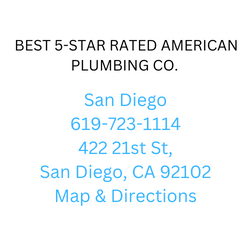Become a Plumber by Standard
When I work on someone’s house, I strive to do the highest quality work possible. I do not believe in just getting in, getting out, and going to the next job type of thinking.
Going to school and learning in class and while working is best. To learn the plumbing code book. And other lessons in school. And always furthering your education.
I learned under Master Plumbers when I was young. Jack and Arturo.
Attending an apprenticeship for several years
Attending an apprenticeship and then attending a contractor course training. And going to any follow-up of any new material training. And just learning the use of how plumbing is properly installed.
I attended the the P.H.C.C. in 1984. This is an apprenticeship for plumbers. And then I attended 1 year of Contractors school. During the evenings.
I would say one of the most important things is when starting out you learn from a Master plumber if possible. Why? Well this is self explanatory. I was fortunate enough to have learned under two master plumbers 40 years ago. Or I would say at least to learn under a journeyman plumber for 5 years or so.
Plumbers plan, install and repair piping systems, fittings, piping equipment, and controls. There are many different types of piping systems, with each one unique for a specific purpose.
But what if someone asks Can I become a plumber at 30 plus?
Yes, of course, you can. But it is better when you are younger, I would say.

The answer is not certain because even at 40 or 50, you are still required to have a healthy and strong body to work as a plumber.
In addition, skills through an internship and special training must be required to meet the standard qualifications to become a plumber.
What Does a Plumber Do?
What do employers expect from a plumber. Here are some common tasks.
1. Install, maintain and repair cold water and hot water lines, drain lines, shower valves, gas pipes, and general fittings.
2. Sewer line, toilet, sink, and bathtub installation.
3. Maintenance of these plumbing fixtures
4. In the event of a breakdown, he will visually evaluate the fixture and utilize the proper test tools, such as drills, soldering torches, etc., to identify the root of the issue and its exact position.
5. Maintain all pipes, fittings, fixtures, and pipelines. And these are sometimes located in attics underneath a house.
Working conditions differ from one job to another. Plumbers can find themselves in comfortable conditions, especially when it comes to just doing maintenance and repairs.
They can also stand all day, perform their jobs in difficult, confined spaces, and occasionally must lift very large objects. Working with cast iron piping, power tools, new plumbing, and electric power machines.
Working conditions of a plumber?
Working conditions differ from one job to another. Plumbers can find themselves in comfortable conditions, especially when it comes to just doing new construction plumbing, plumbing maintenance and plumbing repairs.
I remember when I was working in the summer time carrying cast iron piping all day. And I also remember working in plumbing repair in a air condition van in the summer.
They can also stand all day, perform their jobs in difficult, confined spaces, and occasionally must lift very large objects. Working with cast iron piping, power tools, new plumbing, and electric power machines.
Archives
- September 2023
- August 2023
- July 2023
- June 2023
- May 2023
- April 2023
- March 2023
- February 2023
- January 2023
- December 2022
- November 2022
- October 2022
- September 2022
- August 2022
- July 2022
- March 2022
- July 2021
- June 2021
- May 2021
- April 2021
- March 2021
- February 2021
- October 2020
- September 2020
- August 2020
- July 2020
- June 2020
- May 2020
- April 2020
- March 2020
- February 2020
- January 2020

